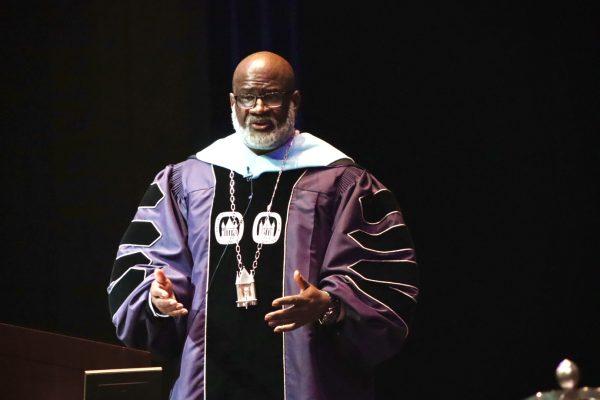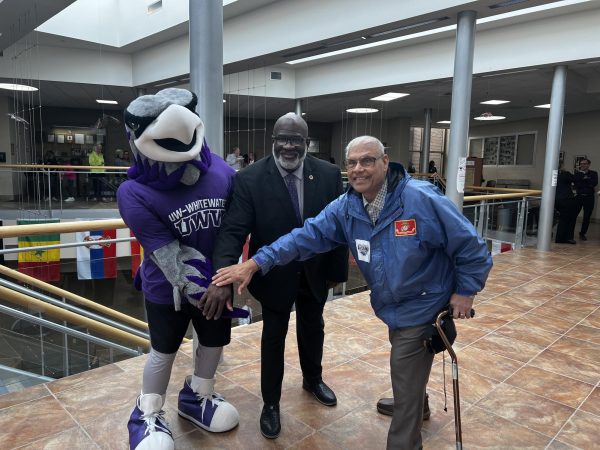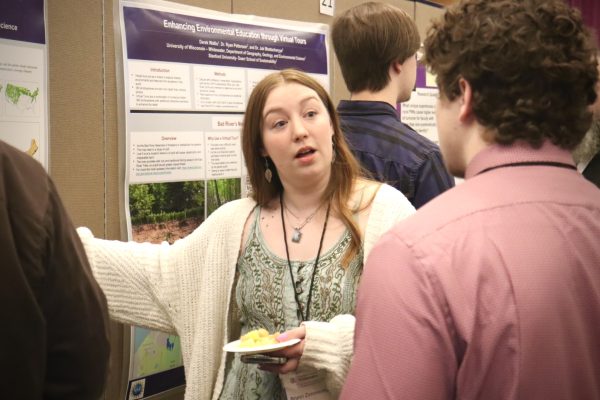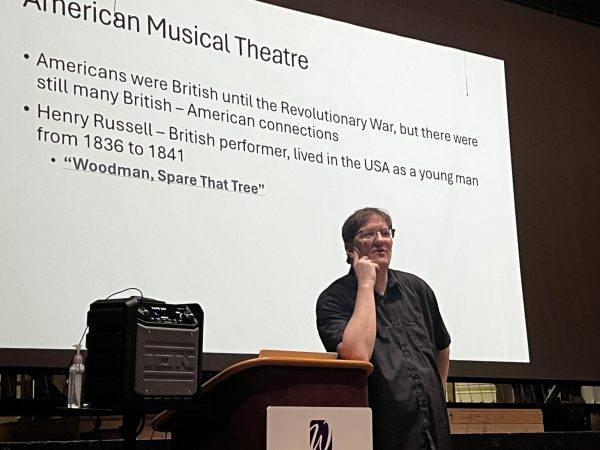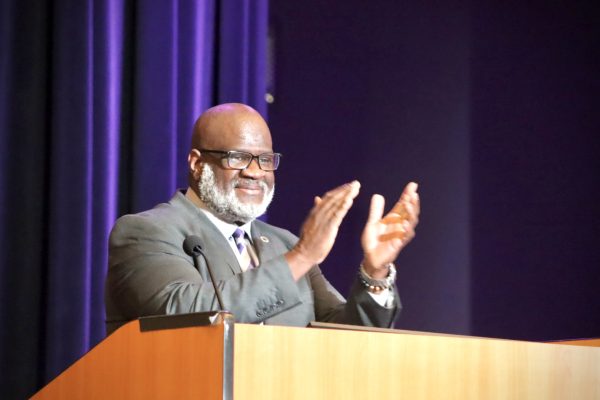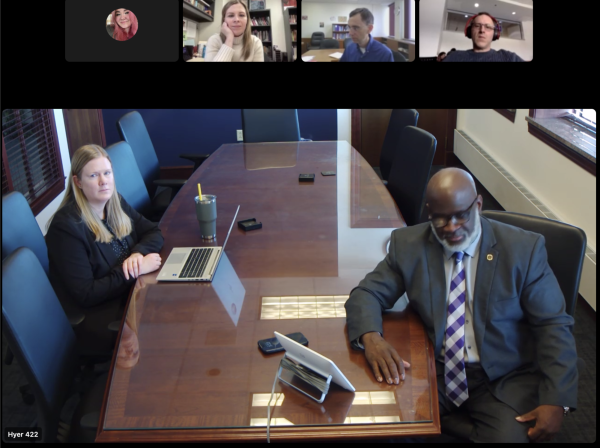Wesley sheds light on women of color
November 11, 2019
Vice Chancellor for Student Affairs Artanya Wesley accepted the 2019 Outstanding Women of Color in Education Award at the Board of Regents meeting in Madison Thursday, Nov. 7. This is an annual award that recognizes a faculty or staff members’ achievements in advancing equity and inclusion.
The award historically is connected to the Office of Student Success at the system level. The assistant vice chancellor for student success is the office that creates the selection committee that looks over each submission and chooses a winner.
“I was very surprised and very honored,” Wesley said. “A colleague, Kenny Yarborough, nominated me, so I wasn’t expecting it. I looked through the email and saw that I was selected as an awardee and I just felt so honored and privileged.”
Wesley explained that she does not look for awards or recognition to know that she is doing the right thing, but looks to the students she works with to make sure she is doing her job and being the best version of herself.
“I don’t engage in this work to be nominated for an award, or to be recognized,” she said. “I engage in this work, and really use a humanistic approach advocating for students, because that’s just who I am and what I do.”
Wesley shared that one of the main reasons she was selected as this year’s winner was because of her advocacy work. From committee meetings, to research in her doctoral work, to meetings that pertain to the university overall, Wesley always makes sure that students are included and involved.
“It’s the constant advocacy, and being student-centered,” she said. “I’m making sure that the needs and concerns of students and the student voice is a priority always at the table. If that voice is either silenced or just not present, I’m making sure to go above and beyond to make sure that the student voice is always heard.”
Wesley strongly believes that students have the ability to go out into the world and make an impact after they leave UW-W. She advocates heavily for different policies and projects that can help students grow and succeed.
“When we’re talking about climate on campus, we’re not just talking about how to support students and making sure that they’re successful, but that they’re thriving,” she said. “We’re making sure they’re becoming well-rounded, cultured and educated individuals.”
The Outstanding Women of Color Award is given to a female UW System faculty or staff member of color to recognize their achievements. This includes how they contribute not only to the academic aspects of higher education, but how they impact students’ lives outside of the classroom as well as the contributions they provide to their institution.
Wesley has used her platform not only to work with students of color, but also advocate and work alongside faculty and staff of color.
“When you talk about the experience of women of color in higher education, they’re underrepresented,” she said. “Often times, the work that they do and the contributions they make don’t always reach high platforms, or they’re not always recognized in a way that their white or male colleagues are recognized. I believe the essence of this award is to not only provide a dedicated time to those practitioners at college campuses or professionals in the field, but also to be an encouragement to many other women of color in higher education to continue the work that they’re doing.”
The lack of female staff of color is something that Wesley strives to shed light on, in the hope that their work can be appreciated and be recognized. She stated that although there is lots of great work happening on campus from all faculty members, regardless of gender or race, there is an obvious underrepresentation. However, their work is something that Wesley does not take for granted.
“Without their contributions, it would be a hindrance not only to our institution, but to our students as well,” she said. “I think [the award] is a wonderful idea to be able to recognize women of color in this work, but also to encourage those who are either coming behind those women who have been recognized or who have been in the field for many years to continue.”












